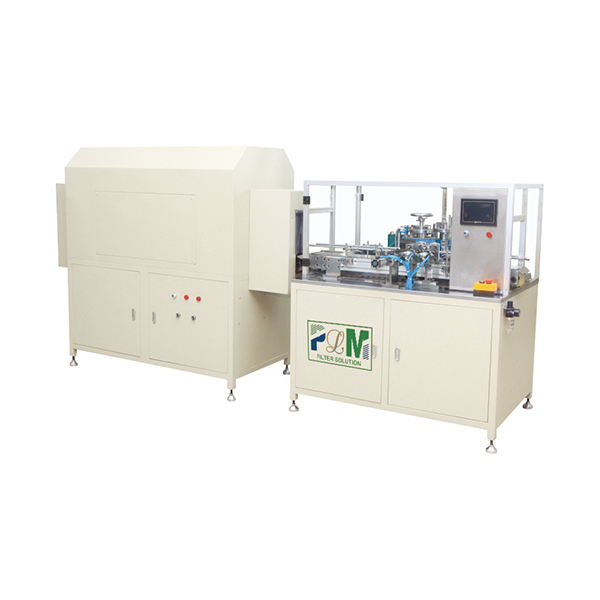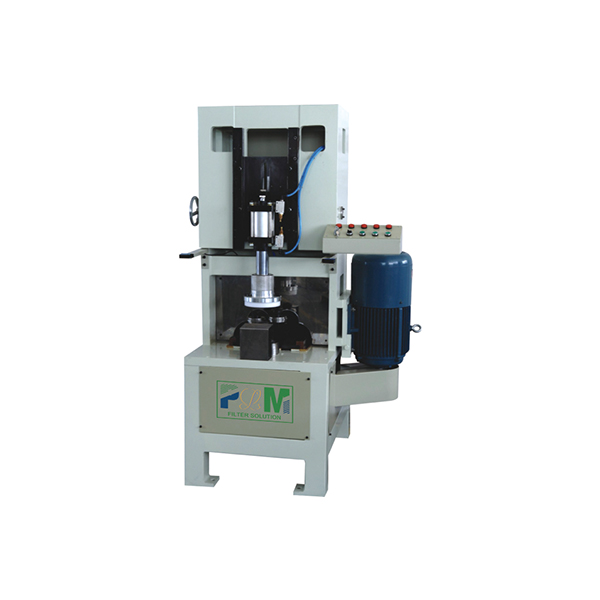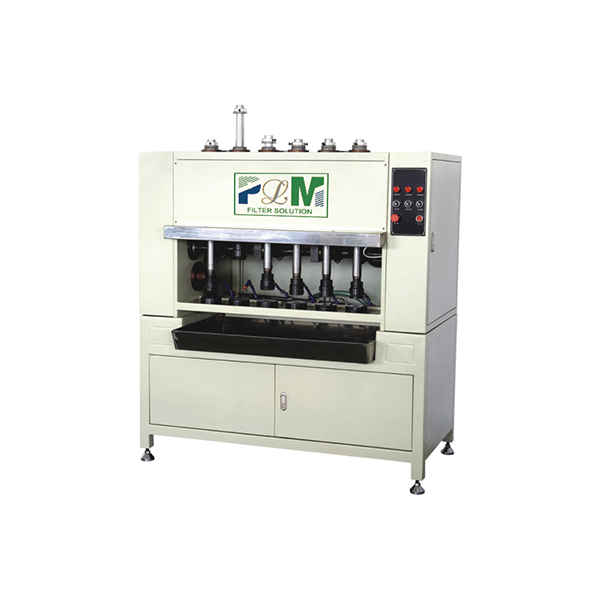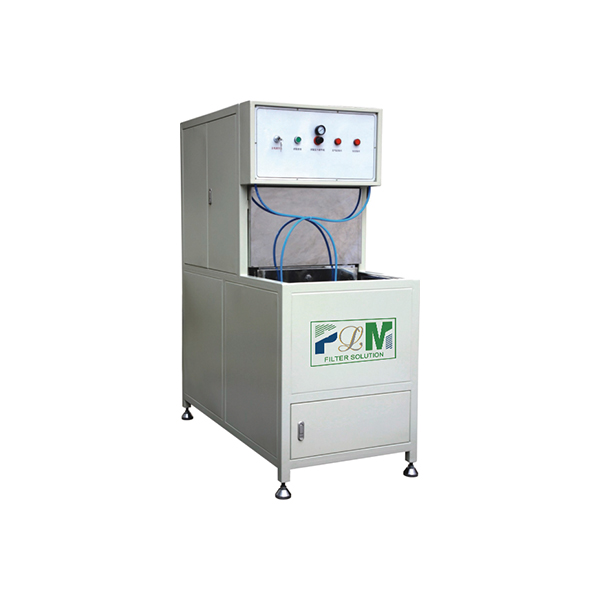Sep . 10, 2025 08:40 Back to list
High-Efficiency PP Spun Filter Cartridge Making Machine
The Evolution and Precision of PP Spun Filter Cartridge Manufacturing
In the realm of modern industrial filtration, the demand for highly efficient, cost-effective, and durable filter media is ever-increasing. Central to meeting this demand is the advanced technology behind the production of filter elements. Specifically, the pp spun filter cartridge making machine stands as a cornerstone in producing melt-blown filter cartridges crucial for diverse applications, from water treatment to chemical processing. This sophisticated machinery represents a leap in manufacturing precision, offering unparalleled control over filter density, pore size distribution, and structural integrity. The industry is continuously evolving, driven by the need for enhanced filtration performance, reduced operational costs, and greater sustainability. Manufacturers are increasingly looking for solutions that offer high automation, energy efficiency, and adaptability to produce a range of filter types, including those for reverse osmosis water filter machines and pure water treatment filter machines. As global challenges such as water scarcity and industrial waste become more pressing, the role of efficient filtration technology, underpinned by reliable manufacturing equipment, becomes indispensable.
Current market trends indicate a significant growth trajectory for the global filter industry, projected to reach over $100 billion by 2027, with a compound annual growth rate (CAGR) exceeding 6% from 2020. This growth is largely fueled by escalating industrialization, stringent environmental regulations, and a heightened focus on public health. The segment for liquid filtration, where PP spun cartridges are predominantly used, is particularly robust. Furthermore, the push towards sustainable manufacturing practices and the development of filters with extended service life are key drivers influencing machine design and capabilities. Innovation in materials science also plays a pivotal role, with ongoing research into enhancing the thermal and chemical resistance of PP fibers, making the output of a pp spun filter cartridge making machine even more versatile.
Detailed Process Flow: Manufacturing PP Spun Filter Cartridges
The manufacturing process of a PP spun filter cartridge utilizing a modern pp spun filter cartridge making machine is a highly automated and precise operation. It begins with raw material preparation and culminates in the formation of a gradient-density filter cartridge designed for optimal filtration performance. The machines themselves are typically built using robust engineering principles, often involving CNC machined components for high precision, and specialized casting and forging processes for critical structural elements to ensure longevity and consistent output.
Manufacturing Steps (Schematic Representation):
- 1. Raw Material Feeding: High-quality polypropylene (PP) granules (typically food-grade and medical-grade options available, complying with FDA standards for material safety) are loaded into a hopper. These granules are selected for their consistent melt flow index (MFI) and purity to ensure uniform fiber formation.
- 2. Heating and Melting: The PP granules are conveyed into an extruder, where they are heated to their melting point (typically 180-250°C) and homogenized into a viscous melt. Precise temperature control is crucial to prevent degradation and ensure consistent viscosity.
- 3. Melt Blown/Spun Extrusion: The molten PP is then pumped through a die head, which consists of numerous fine nozzles (spinnerets). High-velocity hot air is blown through the die, attenuating the molten polymer into extremely fine fibers (melt-blown process). The air stream also helps solidify these fibers.
- 4. Fiber Deposition: The fine PP fibers are directed onto a rotating mandrel. As the mandrel rotates and moves axially, the fibers are continuously layered, forming a dense, self-bonding structure. The machine’s advanced controls allow for varying winding tension and air flow to create a gradient pore structure, ensuring larger particles are trapped on the outer layers and finer particles closer to the core.
- 5. Cooling and Solidification: As layers accumulate, the fibers cool and solidify, creating a rigid, self-supporting filter cartridge. No binders or adhesives are used, preserving the chemical purity of the filter.
- 6. Cutting and Finishing: Once the desired length and density are achieved, the filter cartridge is automatically cut from the mandrel. Advanced machines include integrated flattening or end-capping processes for precise finishing, ensuring compatibility with standard filter housings. This stage can involve mechanisms similar to the PLYP-1200 Flattening Machine, ensuring perfect cartridge dimensions.
- 7. Quality Control: Each cartridge undergoes rigorous quality checks, including visual inspection, dimensional verification, and sometimes burst pressure tests, to ensure compliance with standards like ISO 9001:2015.
The components of a pp spun filter cartridge making machine itself are engineered for demanding industrial environments. Key parts, such as the extruder barrel and screw, are often manufactured from specialized alloy steels, heat-treated, and precisely machined (e.g., via CNC machining) for exceptional wear resistance and smooth operation. The die heads, critical for fiber formation, require extremely high precision, often achieved through multi-axis CNC milling and polishing. Testing standards for the machine itself often include ISO 12100 for machine safety and CE certification for the European market. Such robust engineering ensures a service life often exceeding 10-15 years with proper maintenance, significantly reducing total cost of ownership.
These machines are pivotal in industries such as petrochemical, metallurgy, pharmaceuticals, and water supply & drainage. In a typical scenario like industrial water treatment, using filters produced by an advanced pp spun filter cartridge making machine leads to significant energy savings by reducing pump loads due to lower initial pressure drop, and offers superior corrosion resistance compared to metallic filter media, thereby extending system lifespan and reducing maintenance downtime.
Technical Specifications and Performance Parameters
The performance of a pp spun filter cartridge making machine is characterized by a range of technical specifications that directly impact its output quality and operational efficiency. Below is a representative table outlining typical parameters for a high-capacity, professional-grade machine.
Typical Product Specification Table: PP Spun Filter Cartridge Making Machine
| Parameter | Value/Range | Unit/Description |
|---|---|---|
| Production Capacity (Per Line) | 500 - 1500 | Pcs/24 hours (for 10-inch cartridge) |
| Filter Cartridge Diameter Range | 25 - 120 | mm (1-5 inches approx.) |
| Filter Cartridge Length Range | 125 - 1500 | mm (5-60 inches approx.) |
| Main Motor Power | 30 - 75 | kW |
| Heating Power | 15 - 30 | kW |
| Raw Material | Polypropylene (PP) | Granules, MFI 12-25 |
| Micron Rating Accuracy | 95% at specified micron | Beta Ratio >100 (for absolute rating) |
| Automation Level | PLC Controlled | HMI Touch Screen Interface |
| Power Supply | 3 Phase, 380V/50Hz | (Configurable for regional standards) |
These specifications highlight the capabilities of a modern production line, emphasizing output, versatility in product dimensions, and advanced control systems for precise manufacturing. Achieving these parameters requires a machine whose construction materials are engineered for high temperatures and pressures, such as high-strength alloy steels for extruder barrels and precision-ground dies for consistent fiber diameter. Certification from bodies like TÜV Rheinland for safety and performance further solidifies the authoritativeness of such equipment.
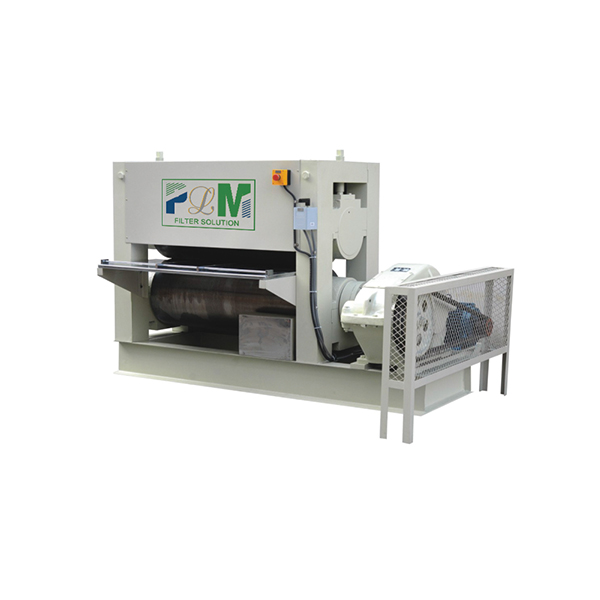
Application Scenarios and Industry Impact
The versatility of filters produced by a pp spun filter cartridge making machine makes them indispensable across a wide spectrum of industries. Their excellent chemical compatibility, high dirt-holding capacity, and cost-effectiveness position them as a preferred choice for various pre-filtration and fine filtration tasks.
- Water Treatment Plants: Essential for municipal and industrial water purification, acting as primary filters for sediment removal, protecting downstream equipment like reverse osmosis water filter machines and UV sterilizers. They significantly extend the life of more expensive membrane filters.
- Chemical and Petrochemical Industries: Used for filtering various chemicals, acids, bases, and solvents to remove particulate contaminants, ensuring product purity and preventing equipment damage. Their inherent corrosion resistance to many chemicals is a major advantage.
- Pharmaceutical and Biotechnology: Employed in non-critical pre-filtration stages to reduce bioburden and particulate matter in process water and raw materials, safeguarding sensitive processes. Compliance with cGMP guidelines is often a key consideration, ensuring the machine itself adheres to high hygiene and material standards.
- Food and Beverage Sector: Crucial for clarity filtration in beverages, edible oils (e.g., alongside a sunflower seeds oil filter machine), and purified water used in food processing, ensuring product quality and consumer safety.
- Electronics Manufacturing: Used to filter ultra-pure water and process chemicals in semiconductor and electronics production, where even microscopic particles can cause defects.
- Air Filtration Systems: While primarily for liquid, variations in melt-blown technology can also contribute to elements used in professional air filter making machines, and potentially even components for 2014 - car air filter making machine models, showcasing the broader impact of melt-blown technology.
These applications demonstrate the broad utility of PP spun filters, highlighting their critical role in maintaining product quality, protecting valuable equipment, and ensuring operational efficiency across diverse industrial landscapes. The continuous development of a robust pp spun filter cartridge making machine ensures these industries have access to reliable and high-performance filtration solutions.
Technical Advantages and Vendor Comparison
Key Technical Advantages:
- Gradient Density Structure: Modern pp spun filter cartridge making machine systems are engineered to create filters with a true gradient pore structure. This means the filter becomes progressively finer from the outer surface to the core, maximizing dirt-holding capacity and extending service life compared to uniformly dense filters. This leads to fewer filter changes and reduced operational costs.
- High Purity and Chemical Compatibility: Since the filters are made from 100% pure polypropylene without any binders, surfactants, or adhesives, they offer excellent chemical resistance to a wide range of reagents and minimal extractables, crucial for sensitive applications.
- High Dirt-Holding Capacity: The unique fiber matrix and gradient structure allow for a significantly higher capacity to trap contaminants, leading to longer service intervals and consistent filtration efficiency throughout the filter's life.
- Low Pressure Drop: Optimized fiber distribution and controlled porosity result in a low initial pressure drop, translating to lower energy consumption for pumps and improved system hydraulics.
- Automated and Consistent Production: Advanced machines feature PLC control and HMI interfaces, ensuring repeatable and consistent production quality, reducing human error, and allowing for rapid adjustments to production parameters. This is vital for meeting stringent industry standards.
Vendor Comparison: Evaluating PP Spun Filter Cartridge Making Machine Providers
When selecting a pp spun filter cartridge making machine, discerning buyers consider several critical factors beyond initial cost. This comparison focuses on attributes that define long-term value and operational excellence. Many vendors offer basic machines, but leading manufacturers differentiate themselves through superior engineering, innovative features, and comprehensive support.
| Feature Category | Leading Vendor (e.g., MFilterSolution) | Standard Vendor |
|---|---|---|
| Automation & Control | Full PLC with HMI, remote diagnostics, real-time data logging, PID temperature control. | Basic electrical control, manual adjustments, limited data feedback. |
| Energy Efficiency | Optimized heating elements, inverter drives for motors, advanced thermal insulation, energy recovery. (Up to 20% energy saving) | Standard motors, less efficient heating, higher power consumption. |
| Precision & Consistency | High-precision CNC machined dies, automatic mandrel alignment, precise melt pump control for consistent micron ratings (e.g., +/- 0.5 micron). | Standard tooling, potential for micron variation, manual adjustments often required. |
| Material Durability | Premium alloy steels for extruder screw/barrel, hardened components, corrosion-resistant finishes for extended lifespan (15+ years). | Standard steels, faster wear, higher maintenance frequency. |
| Customization Options | Modular design, customizable filter length/diameter, specialized end-cap attachment, integration with other lines (e.g., for filter end treatment). | Limited customization, fixed configurations. |
| After-Sales Support | Global network, 24/7 technical support, on-site installation & training, extensive spare parts inventory, preventative maintenance programs. | Limited regional support, basic troubleshooting, longer spare parts lead times. |
This comparison underscores the importance of investing in a machine from a reputable vendor that prioritizes precision engineering, advanced automation, and robust after-sales support. While a standard machine might suffice for basic needs, a leading-edge pp spun filter cartridge making machine offers superior performance, lower total cost of ownership, and greater flexibility for future expansion.
Customized Solutions and Application Case Studies
Tailored Manufacturing for Unique Requirements:
Recognizing that no two industrial applications are identical, leading manufacturers of pp spun filter cartridge making machine offer extensive customization options. These range from configuring the production line for specific filter dimensions (e.g., extra-long cartridges for specialized industrial housings) to integrating advanced features for enhanced process control or material handling.
- Output Capacity Scaling: Machines can be configured with multiple production lines to meet high-volume demands, or single lines for specialized, lower-volume needs.
- Filter Specification Diversity: Customization includes adapting mandrels and control programs to produce cartridges with varying inner/outer diameters, lengths, micron ratings (from 0.5 to 200 microns), and specific end-cap configurations.
- Material Flexibility: While primarily for PP, some advanced systems can be adapted for other thermoplastic polymers depending on the specific application's chemical and thermal requirements.
- Integration with Downstream Equipment: Custom solutions often involve seamless integration with other processing machinery, such as automated packaging systems, filter end-cap welding machines, or quality inspection stations. This holistic approach ensures an efficient workflow from raw material to finished product, especially important for professional air filter making machines or even specialized paper folding machines for air filters where integration with subsequent stages is key.
Application Case Studies: Real-World Impact
These examples highlight the tangible benefits clients derive from deploying advanced pp spun filter cartridge making machine technology:
Case Study 1: Municipal Water Treatment Plant Upgrade
A large municipal water treatment plant in Southeast Asia faced challenges with inconsistent pre-filtration, leading to premature fouling of their expensive reverse osmosis membranes. After implementing a new high-capacity pp spun filter cartridge making machine to produce customized 30-inch, 5-micron PP cartridges, they observed a dramatic improvement. The consistent gradient density of the new filters extended the lifespan of their RO membranes by 40%, reducing annual replacement costs by over $150,000 and significantly decreasing maintenance downtime. This demonstrates the expertise and experience brought by a reliable machine supplier.
Case Study 2: Chemical Processing Facility – Enhanced Purity
A specialty chemical manufacturer required ultra-pure solvents for their delicate synthesis processes. Their previous filters often shed fibers, leading to product contamination. By installing a pp spun filter cartridge making machine with advanced melt-blown technology ensuring zero fiber migration, they achieved a consistently higher product purity, evidenced by quarterly batch analysis reports. This enabled them to meet stringent client specifications and reduce batch rejections by 15%, equating to substantial cost savings and improved reputation. The machine's ISO 9001 certification and robust design contributed significantly to this trustworthiness.
Case Study 3: Edible Oil Refinery – Increased Throughput
An edible oil refinery, also utilizing a sunflower seeds oil filter machine, sought to increase its filtration throughput for refined oils. Their existing filter supplier provided cartridges with variable dirt-holding capacities. Adopting in-house production with a modern pp spun filter cartridge making machine allowed them to engineer filters with a precise, consistent micron rating and optimized flow characteristics. This resulted in a 20% increase in filtration flow rates and a 25% reduction in filter change-outs, directly boosting their production efficiency and profitability. Their partnership with a vendor boasting 20+ years of experience solidified their decision.
Commitment to Trust: FAQ, Lead Time, Warranty, and Support
Frequently Asked Questions (FAQ):
-
Q: What raw materials are suitable for your PP spun filter cartridge making machine?
A: Our machines are primarily designed for high-quality virgin polypropylene (PP) granules with a consistent Melt Flow Index (MFI) typically ranging from 12-25. We can also advise on specific grades for food-grade or other specialized applications. -
Q: Can your machines produce filters with different micron ratings and lengths?
A: Absolutely. Our advanced PLC control systems allow for easy adjustment of production parameters to achieve various micron ratings (from 0.5 to 200 microns) and filter lengths (from 5 to 60 inches), along with diverse outer diameters, ensuring maximum flexibility. -
Q: What is the typical power consumption of your PP spun filter cartridge making machine?
A: Power consumption varies depending on the machine configuration and capacity. For a standard single-line machine, total power typically ranges from 45 kW to 105 kW. We prioritize energy-efficient designs to minimize operational costs. -
Q: How does your machine compare to a screw press sludge dewatering machine in terms of maintenance?
A: While both are industrial machines, a pp spun filter cartridge making machine typically has fewer heavy mechanical moving parts directly exposed to abrasive materials compared to a screw press sludge dewatering machine. This generally translates to simpler and less frequent mechanical maintenance. However, regular cleaning of the die head and precise temperature control are critical for filter quality. -
Q: Do you provide training for operating the machine?
A: Yes, comprehensive on-site installation, commissioning, and operator training are standard parts of our service package, ensuring your team is fully proficient in operating and maintaining the equipment.
Lead Time and Fulfillment:
Our typical lead time for a standard pp spun filter cartridge making machine is 8-12 weeks from the confirmation of order and deposit. For highly customized configurations or multi-line systems, lead times may extend to 14-20 weeks. We maintain rigorous project management to ensure timely delivery and efficient factory acceptance testing (FAT) before shipment. All equipment is securely packaged for international transit to prevent damage.
Warranty and After-Sales Support:
We stand by the quality and reliability of our equipment. All pp spun filter cartridge making machine units come with a standard 12-month warranty covering manufacturing defects and major component failures from the date of installation or 18 months from shipment, whichever comes first. Our commitment extends beyond the warranty period with comprehensive after-sales support including:
- 24/7 Technical Hotline: Access to expert technicians for immediate troubleshooting.
- Remote Diagnostics: Capabilities for remote access and diagnostics of PLC systems to resolve software-related issues quickly.
- Spare Parts Availability: A readily available inventory of genuine spare parts to minimize downtime.
- On-site Service: A global network of service engineers available for on-site repairs, preventative maintenance, and system upgrades.
- Documentation: Comprehensive operation and maintenance manuals provided in multiple languages.
Our commitment to customer success is a testament to our long-standing relationships with clients worldwide, many of whom have partnered with us for over a decade. This foundation of trust is built on consistent performance and reliable support.
Citations
- Grand View Research. "Water Purifier Market Size, Share & Trends Analysis Report By Technology (RO, UV), By End-use (Point-of-Use, Point-of-Entry), By Region, And Segment Forecasts, 2021-2028." Published 2021.
- MarketsandMarkets. "Filters Market by Type (Air, Water, Oil, Fuel, Liquid), End-Use (Motor Vehicle, Industrial & Manufacturing, Utilities), Media (Activated Carbon, Fiberglass), and Region - Global Forecast to 2027." Published 2022.
- ISO.org. International Organization for Standardization. ISO 9001:2015 Quality management systems – Requirements.
- European Parliament and Council. "Directive 2006/42/EC of 17 May 2006 on machinery, and amending Directive 95/16/EC (recast)."
Comprehensive Guide to Filter Caps: Applications, Benefits & Future Trends
NewsNov.24,2025Filter Paper: Essential Guide for Industry and Global Applications
NewsNov.23,2025Essential Guide to Filter Materials: Types, Applications, and Future Trends
NewsNov.22,2025Efficient Long Pulse Dust Collector Pleated Filters for Superior Industrial Air Quality
NewsNov.22,2025Professional Air Filter Making Machine – Efficient Air Filtration Production Solutions
NewsNov.21,2025PLAB-6 A/B Glue System-Hebei Filter Man|Precision&Adjustable Speed
NewsNov.21,2025

